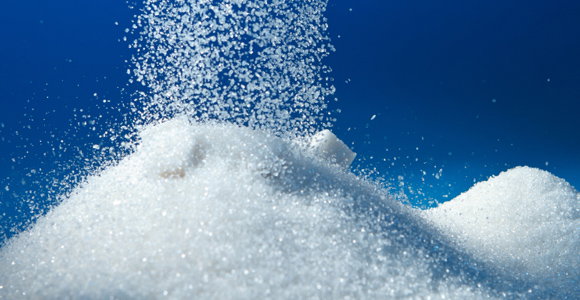Sweeteners termed "all natural" have been gaining popularity at record speed over the last few years, spawning a slew of new calorie-free sweeteners. Stevia was the most recent natural sweetener to hit the market, but it may have some competition nipping at its heels. All-natural sweeteners derived from monk fruit, which is native to parts of Asia, are now taking up residence next to all of the other no-calorie sweeteners. Those familiar pink, blue, and yellow tabletop sweetener packets now have some company on supermarket shelves in the form of monk fruit sweeteners.
Monk fruit concentrate or extract comes from a green, round melon that is primarily grown in the southern part of China. Marketers of this new round of all-natural sweeteners claim it tastes great and provides you with an all-natural, calorie-free alternative to artificial sweeteners. Reportedly, monk fruit does not have the same bitter aftertaste that some people associate with stevia-based sweeteners.
Two companies are helping bring monk fruit to consumers. The New Zealand-based company BioVittoria, the supplier of monk fruit extract, partnered with the company Tate & Lyle, the exclusive global marketer and distributer of the monk fruit-based sweetener, to produce Purefruit. According to Tate & Lyle, they have used Purefruit in more than 1,000 sample products.
Some Facts about Monk Fruit
• Monk fruit, which has a traditional Chinese name of "luo han guo," has been used as a sweetening agent in Asia for hundreds of years.
• Monk fruit is approximately 150-220 times sweeter than sucrose (table sugar).
• The Food and Drug Administration (FDA) has affirmed monk fruit as GRAS (generally recognized as safe).
• Monk fruit extract is water-soluble and is also not affected by heat or acid (unlike some other types of sweeteners, which are unstable in hot or acidic environments).
• Monk fruit extract is already being used in some foods and beverages in the U.S.
Products Sweetened with Monk Fruit
You may have already tried and liked a food that was sweetened with monk fruit extract without even knowing it. Monk fruit extract is currently being used to sweeten a variety of foods and beverages, including some fruit juices, cereals and granolas, dairy foods, frozen dessert products, mint candies, calorie-free tabletop sweeteners, supplemental probiotics, and whey protein powders.
A new zero calorie, tabletop sweetener called Nectresse combines Purefruit (monk fruit), sugar, and erthyritol (a sugar alcohol). The sweetener doesn't actually say it contains Purefruit, which is the brand name, on the package, but it does advertise that it is made from monk fruit. It was first introduced to consumers in July of 2012, reportedly with positive feedback.
A second zero-calorie, tabletop sweetener containing monk fruit is just now hitting the market. Monk Fruit in the Raw is a combination of Purefruit and dextrose.
The Future of Monk Fruit
As the obesity epidemic continues to plague the United States and other nations, leading some consumers to seek out all natural, low-calorie sweeteners to help reduce their calorie intake, manufacturers of monk fruit concentrate predict that we'll see a significant rise in demand for products sweetened with this fruit extract.
Kari Hartel, RD, LD is a Registered, Licensed Dietitian and freelance writer based out of St. Louis, MO. Kari is passionate about nutrition education and the prevention of chronic disease through a healthy diet and active lifestyle. Kari holds a Bachelor of Science in Dietetics from Southeast Missouri State University and is committed to helping people lead healthy lives. She completed a yearlong dietetic internship at OSF St. Francis Medical Center in Peoria, IL, where she worked with a multitude of clients and patients with complicated diagnoses. She planned, marketed, and implemented nutrition education programs and cooking demonstrations for the general public as well as for special populations, including patients with cancer, heart disease, diabetes, Alzheimer's disease, obesity, and school-aged children. Contact Kari at [email protected].



